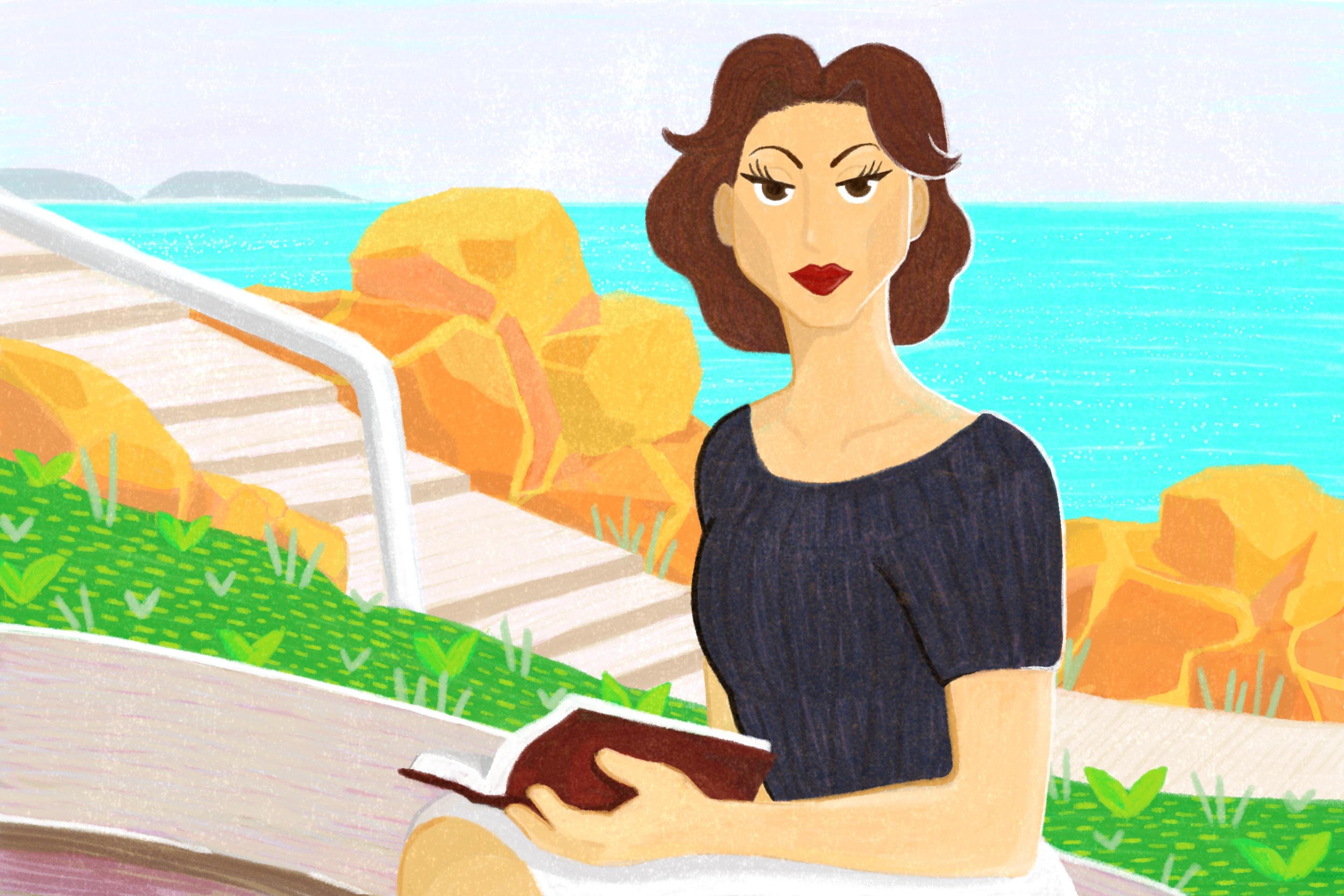“To probe oneself is to recognize that one is incomplete”
As an idiosyncratic mystery, critically acclaimed Brazilian modernist writer Clarice Lispector often unraveled the uncanny emptiness in young women and men alike. Replacing linear narratives with abstract and prose-driven writing, Lispector’s perfection of modernism earned her significant respect as a creative social commentator from 1944 until her death in 1977.
Perhaps her most famous novella, The Hour of the Star reflects the tragic and dissonant search for identity through a young and impoverished Brazilian woman named Macabea. Narrated by a former rural Brazilian named Rodrigo S.M (Rodrigo), The Hour of the Star is both a saudade inner monologue and an unsettling depiction of how a sexist and classist social system rips away the innocence of young women.
Raised in the rural northeast of Brazil, Lispector grew up in extreme poverty and eventually moved to Rio de Janeiro like her character Macabea. Unlike Macabea, however, Lispector was quite a critical thinker and unleashed her indignancy for under-resourced Brazilian women through profound philosophy.
The Hour of the Star begins mirroring Lispector’s social commentary through Rodrigo’s consistent yet self contradictory train of thought, often disdaining those who foolishly search for identity and meaning in life while experiencing his own existential crisis. If there was a poster child for cognitive dissonance, it would be Rodrigo.
Rodrigo, who is hypocritically disgusted with 19 year-old Macabea’s scatterbrained and hollow conscious, laments everything from “This story is so banal that I can scarcely bear to go on writing” to “I am desperately trying to discover in the girl’s existence at least one bright topaz… I am hopeful.”
By “the girl,” Rodrigo refers to our protagonist Macabea, whose life is illustrated as pitifully simple, boring and satisfying for everyone but her, who lives a happy-go-lucky life, establishing her identity through her status in Brazil. Though she feels dignified being a typist, she is not skillful in her work and can hardly spell due to her lack of education. Macabea is described as the most uncharming girl one could meet, as she always agrees with what others believe and is too trusting. She’s also unhygienic, wiping snot on her sleeves. She receives her education from a consumerist environment, adoring advertisements depicting fashion and beautiful women, as this is what she aspires to be. Her role model is Marilyn Monroe, she feasts on Coca Cola and hot dogs and becomes excited thinking about getting murdered like the women she sees in films.
“There are thousands of girls like this girl from the Northeast to be found in the slums of Rio de Janeiro” Rodrigo summarizes. “I must make it clear that this girl doesn’t know herself. Were she foolish enough to ask herself, ‘Who am I?’, she would fall flat on her face.”
Throughout the novella, it is revealed that Macabea works with a condescending and vain woman named Gloria who sets Macabea up with Olimpico, a temporary boyfriend who is also an arrogant and aspiring politician. His self-identity is one dimensionally defined by flexing his wealth— that is, hiding the fact he steals his jewelry and is an illegitimate child who grew up poor just like Macabea.
He capitalizes off of his educational upbringing by ridiculing Macabea’s innocence and pitiful optimism, similarly to Rodrigo. Lispector draws a parallel between these masculine tendencies to disempower women for the sake of lifting themselves up, a performance of low self-identity that also correlates with a sexist educational system that excludes women like Macabea.
Similarly, Rodrigo also finds many qualities in Macabea that he relates to, such as her disappointing lack of identity. Macabea, after discovering Olimpico is leaving her for her co-worker Gloria, cannot recognize that she is feeling heartbreak because of how uneducated and emotionally mechanical she is. Assuming emotional pain is simply physical pain, poor Macabea swallows aspirin to cure the pain “inside” of her, as she says. Growing up without formal education disadvantages her ability to think critically, independently and with personal desire. She desires what those around her think she should, whether that be fame, love or economic prosperity.
Rodrigo’s lack of identity stems from his inability to accept he desires one in the first place. By constantly criticizing an aimless Macabea, he is criticizing his own self-disappointment in feeling no individuality. He questions the existence of God while asserting God hates Macabea, professes that he is the only one who loves Macabea, yet also compares her to a loyal dog. His contemplations on God, self-love and independent thinking are all of Lispector’s philosophical tools in demonstrating the emotional and psychological effect poverty has on the formation of identity.
Macabea’s story climaxes when she visits a scam fortune teller named Madame Carlotta, who is also a friend of Gloria. Being naive, Macabea believes Gloria’s assurance that the fortune teller will give her useful life guidance. Lispector incorporates the ambiguity of spirituality as a way for audiences to scoff at Macabea’s credulous faith yet evokes empathy through Macabea’s thought process, which is that the uncertainty of the fortune teller’s legitimacy offers endless possibilities of positivity rather than doubt. It is here that readers truly see how tragic Macabea’s blissful innocence is, as she truly does believe in nothing but the best despite a cruel world.
After being told she will marry a foreigner sometime soon, Macabea gleefully prances across the streets of Brazil, but is abruptly hit by a car and dies. Macabea, being so indifferent to death due to her lack of thoughts regarding the existential, relishes the moment. She idealizes her death as that of the murdered women she adores in films, imagining the driver who killed her is her foreign husband kissing her while she metaphorically bursts into a star, hence the title of the novella.
Along with cosmic analogies, Lispector depicts Macabea’s death as a lamb being eaten by an eagle, or a cat eaten by vermin, natural and disgusting cycles of death which are perceived as glorious to a girl with no expectations for what her life will be.
Rodrigo finally declares he and Macabea are one in the same and that by dying, she has killed him. He also confesses she has rid herself of him by dying, one of the many juxtapositions and paradoxes Lispector incorporates into the compartments of self. Rodrrigo reveals his similar desire for a Hollywood-style death with loud music as a soundtrack, similar to Macabea’s stardom as she slipped away.
Readers are left confused, perplexed and unsure of how to feel. Is Macabea simply what she began as: a pitiful case of ignorance? Or, is she a statement advocating for the independent thought and education of young lower class Brazilians? What does Rodrigo represent?
On an existential level, Rodrigo is the human embodiment of the indefinite and unbearable conflict of both wanting a meaningful life yet fearing the disappointment the search for it may bring. Is it better for Rodrigo to remain nihilistic or try to ponder deeper into his purpose? Or, is it better to live in ignorance like Macabea? So many questions arise.
Socio-politically, Rodrigo bridges the gap between the sheltered ignorance of rural northeastern Brazil and the consumerist urban south, both areas of which are filled with impoverished people who address their poverty in different ways depending on their exposure to consumerist media and formal education. For Rodrigo and Macabea, experiencing both the northeast and the south evokes an existential crisis; Rodrigo believes Macabea does not have the mental intellect to recognize that she should be in an existential crisis. In reality, it is he that does not have the guts to admit to himself of his existential crisis, perhaps because he is a man, perhaps for personal sake.
Either way, Lispector masterfully depicts how the economic differences of urban and rural Brazil either make young people consciously shallow or unconsciously devoid of individuality, both of which are nightmares for those who desire meaning such as Rodrigo. In a world where Brazilian citizens were witnessing an expanding world of capitalism and western interventionism, Lispector confronts her people with a nuanced intersection between the political self and the philosophical self. She begs the question for Brazilians of her time: how does economic inequality shape the conjectural avoidance of finding inner core?

















